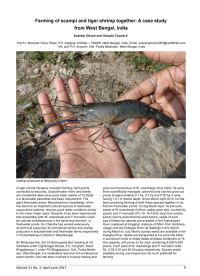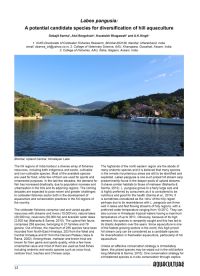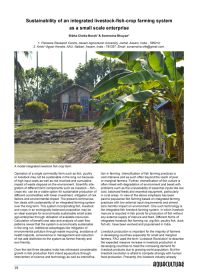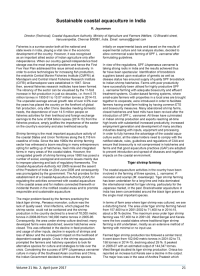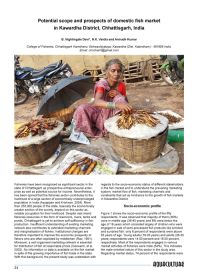Labeo pangusia is a highly prized hill stream carp found mainly in the deeper pools of upland streams. Heavy fishing pressure has led to depletion of wild populations in recent years and the species is likely to become threatened if a conservation strategy is not developed. We report on an investigation into the reproductive biology of this species and on the result of successful induced breeding trials.
We examined the sustainability and economic viability of a model integrated livestock-fish-crop farming system developed by the Fisheries Research Centre, Assam Agricultural University, over an extended period of 13 years. The system was developed as an ecologically sustainable alternative technology for small and margin farmers. It incorporates two livestock components, pig and poultry, with horticulture and carp polyculture. Analysis of cash flow and benefit-cost ration revealed the system to be economically sustainable over the long term.
Coastal aquaculture in India was historically focussed mainly on tiger shrimp farming (Penaeus monodon) but production issues and disease led to the introduction of SPF Pacific white shrimp (L. vannamei) in 2009. A robust technical and legal framework was established by the Coastal Aquaculture Authority. Improved regulation has improved sustainability of the sector and underpinned production, with farmed Pacific shrimp output rising from 1,731 tonnes in 2009-2010 to 353,413 tonnes in 2014-2015.
Trade in fisheries products is an important source of livelihoods for economically underprivileged people in Chhattisgarh. A socio-economic profile of traders and other actors from a domestic fish market is presented, including age, gender, education and income levels. The market infrastructure, distribution channels and species traded are described. Constraints to marketing arrangements are identified and include a lack of cold chain, storage and transport facilities.
